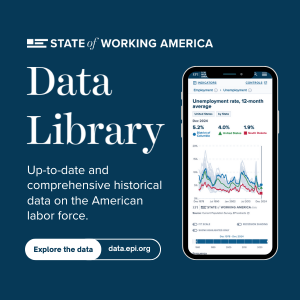No debate here, just facts on the presidential candidates’ economic policies
Tonight, President Obama and Republican nominee Mitt Romney will square off in Denver in the first presidential debate. In preparation, we’ve compiled some of our most relevant analyses of the economy and economic policy from the past few months:
BUDGET
- The so-called “fiscal cliff” isn’t one piece of take-it-or-leave-it legislation; rather, it’s a series of separable tax and spending provisions. Our experts identify which ones should be allowed to phase out (and perhaps be replaced by fiscal support that would more efficiently support economic recovery).
- States are facing $55 billion in budget shortfalls this year, and Romney’s proposed spending cap would decimate budgets further.
- Despite what Romney’s budget plan says, economic growth will come nowhere close to offsetting his proposed tax cuts for the wealthy.
- Would Romney or Obama do more to promote job growth in the near term? We analyze the macroeconomic impacts of both their budget proposals.
- Extending all of the Bush-era tax cuts will provide a massive windfall for the top 1 percent of households.
HEALTH CARE
- Obama’s Patient Protection and Affordable Care Act has increased employer-sponsored health insurance and dependent ESI coverage for young adults—even in a poor labor market.
- Paul Ryan, Romney’s running mate, has proposed a Medicare voucher that will shift around 11 percent of costs to seniors in 2023 (and even more in later years).
JOBS
- The economy would have added another million jobs in 2012 if Congress had fully enacted Obama’s American Jobs Act.
- More than three years after the end of the Great Recession, public-sector job loss resulting from state and local austerity continues to be a major drag on the recovery.
- The labor market’s struggles have meant declining wages and fewer opportunities for young graduates. Graduating in a bad economy also means long-lasting economic consequences for the Class of 2012.
Enjoyed this post?
Sign up for EPI's newsletter so you never miss our research and insights on ways to make the economy work better for everyone.
